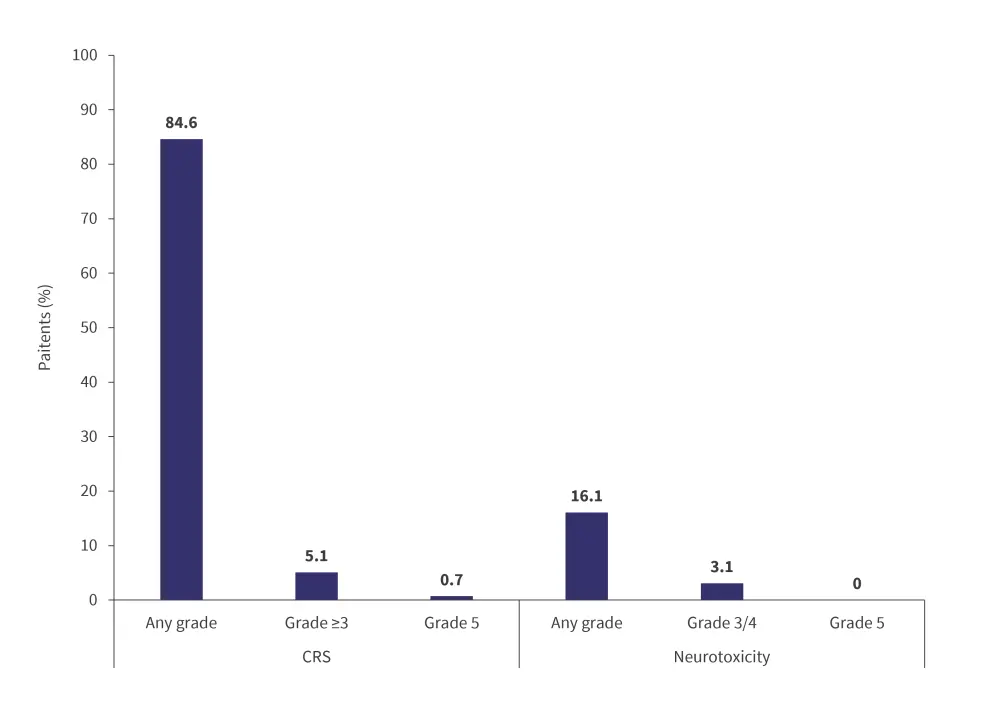All content on this site is intended for healthcare professionals only. By acknowledging this message and accessing the information on this website you are confirming that you are a Healthcare Professional. If you are a patient or carer, please visit the International Myeloma Foundation or HealthTree for Multiple Myeloma.
The mm Hub website uses a third-party service provided by Google that dynamically translates web content. Translations are machine generated, so may not be an exact or complete translation, and the mm Hub cannot guarantee the accuracy of translated content. The mm and its employees will not be liable for any direct, indirect, or consequential damages (even if foreseeable) resulting from use of the Google Translate feature. For further support with Google Translate, visit Google Translate Help.
The Multiple Myeloma Hub is an independent medical education platform, sponsored by Bristol Myers Squibb, GSK, Legend Biotech, Pfizer, and Roche. Funders are allowed no direct influence on our content. The levels of sponsorship listed are reflective of the amount of funding given. View funders.
Now you can support HCPs in making informed decisions for their patients
Your contribution helps us continuously deliver expertly curated content to HCPs worldwide. You will also have the opportunity to make a content suggestion for consideration and receive updates on the impact contributions are making to our content.
Find out more
Create an account and access these new features:
Bookmark content to read later
Select your specific areas of interest
View multiple myeloma content recommended for you
European Commission approves idecabtagene vicleucel for the treatment of triple-class-exposed RRMM
On March 20, 2024, the European Commission granted approval to idecabtagene vicleucel (ide-cel) for the treatment of triple-class-exposed relapsed/refractory multiple myeloma (RRMM) with two or more prior therapies, including an immunomodulatory agent (IMiD), proteasome inhibitor (PI), and an anti-CD38 antibody with subsequent disease progression.1
In August, 2021, ide-cel was granted approval by the European Commission for the treatment of RRMM treated with three or more prior therapies, including an IMiD, PI, and anti-CD38 monoclonal antibody.2 This latest approval for ide-cel marks the first chimeric antigen receptor (CAR) T-cell therapy approved in earlier lines of therapy. This approval is based on data from the phase III KarMMa-3 (NCT03651128) clinical trial.1
The Multiple Myeloma Hub has previously reported the study design of KarMMa-3 and latest updates from ASH 2023.
KarMMa-3 – pivotal data1
- At a median follow up of 18.6 months, treatment with ide-cel demonstrated a significant increase in median progression-free survival (PFS) at 13.8 months vs 4.4 months in the comparator standard-of-care arm (hazard ratio: 0.49; 95% confidence interval [CI]: 0.38–0.63; p < 0.0001).
- The overall response rate (ORR) observed in the ide-cel arm was 71.3%, with a complete response or greater (≥CR) rate of 43.7% vs an ORR of 42.4% and ≥CR rate of 5.3% with standard-of-care treatment.
- Median overall survival was higher in the ide-cel cohort at 41.4 months vs 37.9 months.
- The safety profile observed with ide-cel was comparable to the established profile in later lines of therapy (Figure 1).
Figure 1. Incidence of CRS and neurotoxicity*

CRS, cytokine release syndrome.
*Data from Bristol Myers Squibb.1
References
Please indicate your level of agreement with the following statements:
The content was clear and easy to understand
The content addressed the learning objectives
The content was relevant to my practice
I will change my clinical practice as a result of this content
Your opinion matters
On average, how many patients with MGUS/smoldering MM do you see in a month?

